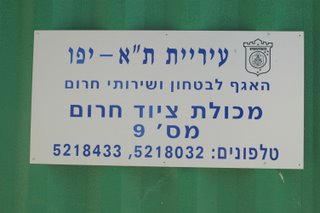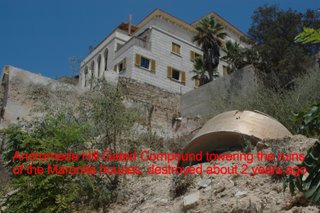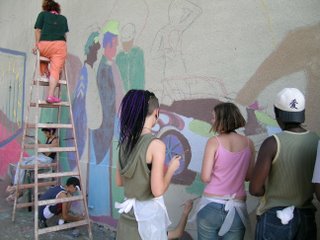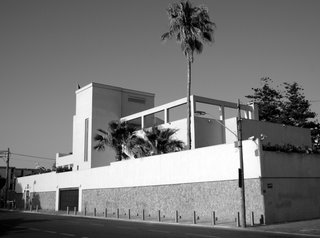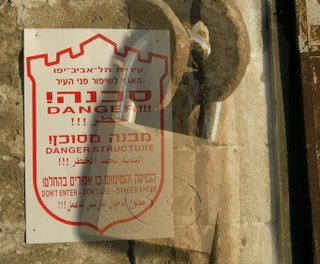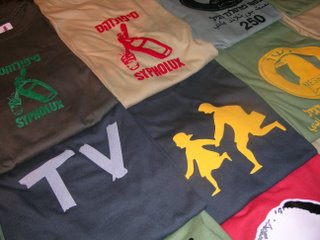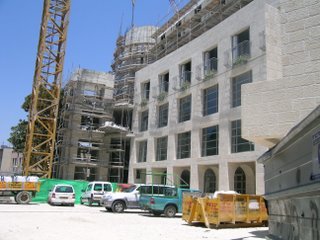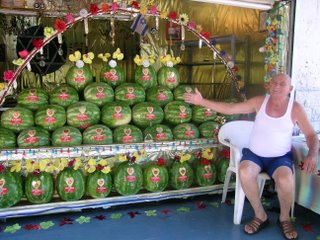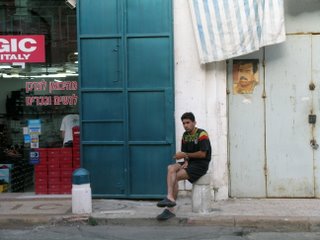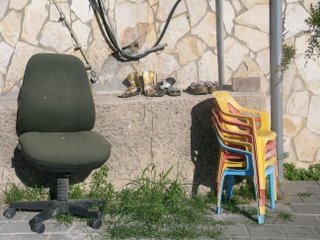
Every half year the Social Security Institute publishes its report on poverty. Each time more people are found to live below the poverty line, yet what does that statistic really mean?
The so called "Caesarea Conference" will discuss poverty. But do the participants have an inkling of what poverty really means?
I would suggest they (the Caesarea participants) live for one week, on social security money only, in one of Jaffa's public housing estates, travel by bus, go to Jaffa's health clinics and send their children to Jaffa's schools. Oh and, they might find them selves cut of from the electricity or the water,as the bills have not been paid for a while. Also, they might have to walk a little longer to a further grocery store, as their debt from the previous month has not yet been paid and the close by grocery refuses to sell them anything unless they pay their outstanding debts. Let's see how they will manage.
Perhaps they should also work as cleaners or guards through an employment company, just for one week. Oh sweet dreams. And now, over to reality:
Ety*, 19 years old, studies to finish her matriculation exams and works part-time as an kinder garden teacher aid. She dropped out of school when she was 16, after her father had been sent to jail for abusing her. She's exempt from army service due to her partial reading skills.
Ety is very intelligent, but she visited over 12 different schools in 10 years. Each time her mother had to run away from her violent husband to a shelter for battered women, Ety had to leave her school. Each time her father located the two of them, so they moved from shelter to shelter and Ety from school to school.
Ety urgently needs dental treatment but cannot afford to get it, even at the free dental clinic where payment is close to symbolic. She walks around in continuous pain and is about to loose 2 teeth, which are too far gone.
During winter she stopped coming to a weekly class i teach. She explained me, she has her own summer sandals, but during the winter she shares shoes with her mother who thankfully has the same shoe size. Her mother, who is ill, had to go to see her doctor, so Ety had no shoes to come to class. As it was raining she couldn't wear her sandals.
Last week the hotza'a lepoel came to the family's 2-bedroom rented flat to carry away the TV and stereo. Much of the furniture had been taken away on a previous visit.
The family's debts?
1. A mortgage they could not pay after the father had been sent to jail. The house was reposessed and sold, but they still owe money on it.
2. Social security fees they did not pay because the mother was waiting to be recognised for an invalid's social security payment.
3. House rent
Ety's mother receives about 1200 NIS monthly, Ety makes between 400 - 800 NIS monthly. The rent for the 2 bedroom apartment they have is 1900 NIS a month.
Ety's mother can barely work, Ety grabs every chance she has to work as a kinder garden aide. As she is on the WIZO replacement list, she gets called every now and then to work for a day or two when the regular aide is ill.
There isn't always enough food in the house. there is no money for the medicine the mother needs, and Ety walks around in pain, with a continuous tooth ache.
Every few days the owner of the house comes by to demand this months rent, which they have not yet paid. They may be evicted soon
That's what's behind the poverty statistics.
As to the statistics: by the recent reports, we are the worst of the western world. Definitely somthing to be "proud" of.
But then, perhaps we are not so much part of the western world. Our "western" gloss is just that, a thin layer not really covering the levant.
Or is it perhaps the deadly combination of globalization, occupation and greed that has led to this situation.
A great many of the poor are actually working people, some of them working in more than one job to make ends meet.
Yet the minimum salary is so low, there is no way a family can live on it.
Many of those with lower wages are employed by so called "employment offices". Although the law is supposed to be some sort of protection, in reality this protection does not work. There are all sorts of loop holes and ways to get around the law.
To understand more about this, it is worthwhile watching Asaf Soudri's and Amir Tausinger's movie "
Strike".
More and more subsidies have been cut, as well as ongoing cuts in social security payments. Controlled prices (and subsidies) for basic foodstuffs have been cancelled and public transport has become more expensive.
"They" try to tell us it will make people "work harder" (thus putting the blame for poverty on the poor), but truly, is the aim of cutting the old age pension of an eighty year old immigrant going to make him run to find a job?
Should a woman with mild retardation working full time for 400 NIS in a rehabilitative protected workshop now look for a second job to be able to pay for the rent?
Or perhaps my friend Souha, mother of 4 young children and a husband in prison who works 5 days a week as a cleaner from early morning to late afternoon and is looking for a summer camp for her kids, because the social services said she's not eligible. Should she leave her job (minimum wage) to take care of her kids during the long summer holiday?
Or perhaps pay all of her wage to a child carer and then beg for food at one of the food banks?
And they are not alone.Statistics don't tell the real image....
*not her real name, the facts are true however.
JaffaPoverty in IsraelWelfareSocial Justice